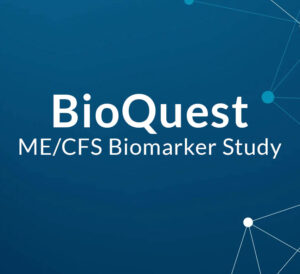Identify a biochemical signature for ME/CFS that can be conveniently evaluated through a blood test.
The absence of a molecular test for ME/CFS is a widely acknowledged challenge to healthcare providers and burden to patients. Currently, diagnosis relies on clinical features that are imprecisely defined, often subjective, overlap substantially with other disorders, and often require referral to a limited number of specialist centers. An ideal test will measure objective biochemical signals (biomarkers) that can be easily sampled in a primary care setting, such as serum or plasma obtained from a simple blood draw.
Various biomarker signatures have been proposed for ME/CFS, but they often lack independent validation, rely on small sample sizes, require specialized techniques (such as multi-color flow cytometry or single-cell Raman spectroscopy), use hard to access biological samples (such as cerebrospinal fluid), or compare between patients and healthy people rather than clinically relevant controls. Therefore, it remains a pressing need to identify new signatures that are robustly validated and readily translatable into the clinic.

What are the advantages of giving from your Donor Advised Fund (DAF)?
How do I make a donation through my DAF?
Just click on the DAF widget below. It is simple and convenient to find your fund among the over 900 funds in our system.
Still can’t find your fund?
Gifting of Stock
Broker: Schwab
DTC #: 0164
Account #: 47083887
Account Registered as:
Open Medicine Foundation
29302 Laro Drive
Agoura Hills, CA 91301
Please speak to your personal tax advisor and then email or call OMF at 650-242-8669 to notify us of your donation or with any questions.